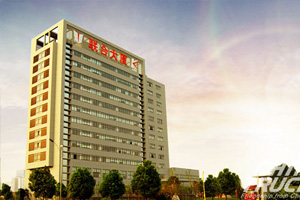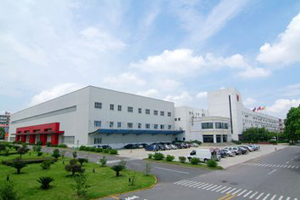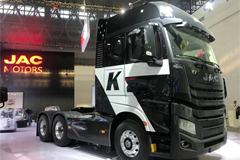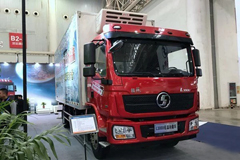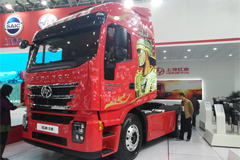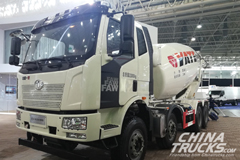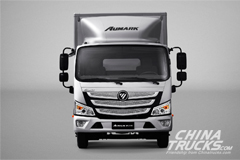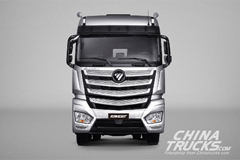FAW Secures a Credit Line of 1 Trillion Yuan from 16 Chinese Banks
Date 26 October 2018 FAW workers celebrate the rollout of Jiefang J7 trucks at a manufacturing facility in Changchun. The state-owned company plays a major role in the economy of northeastern China.
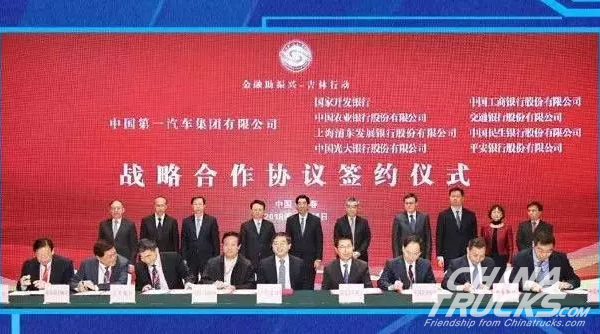
With a stock market that has fallen by over 15 percent this year and a currency reaching its 10-year lows, Chinese authorities have been bombarding the media with announcements of the various measures they have taken to pump more money into the economy and boost investor sentiment.
Yet, there is a news story that has largely gone under the radar: 16 Chinese banks recently signed an agreement with Changchun-based FAW to provide a credit line of 1 trillion yuan (US$144 billion) to help revive the 65-year-old state carmaker.
That a trillion yuan has been earmarked for a single state-owned enterprise is unprecedented, even historic, especially if you compare it with the 4 trillion yuan stimulus package that China launched for the entire economy in the wake of 2008 global financial crisis.
The huge amount of funding can be seen as an important signal that the central government wants to revitalize the economies of China’s northeastern provinces.
We should note that the difficulties faced by China’s coastal private enterprises and the northeastern state-owned enterprises are not the same. The former is caught in the emerging debate over the role of the private sector in the economy against the backdrop of an escalating trade war with the United States. Beijing has tried to soothe investor concerns and restore confidence in the private sector via tax cuts and a reduction in financing costs.
By contrast, SOEs in northeastern China have struggled for years, and FAW is one vivid example.
Established in 1953, FAW is the first automaker in China. Several top Chinese leaders like former president Jiang Zemin have actually worked there.
In 1956, FAW manufactured the first mass-produced automobile under the Jiefang brand. Back then, the automotive industry in Jilin, the petrochemical sector in Heilongjiang, and the steelmaking and shipbuilding industries in Liaoning were symbols of China’s heavy industry. They served as the engines of the nation’s economy for decades.
However, the planned economy and collectivism have their disadvantages. The northeastern region has failed to benefit from the nation’s reforms and opening-up policy and consequently lagged behind the rapid growth in coastal regions.
FAW reported that its auto sales rose by 7.1 percent to 1.71 million units in the first half of this year. But nearly 95 percent of the sales are from joint-venture brands with Volkswagen, Audi, Toyota, and other foreign automakers.
FAW’s homegrown brand, Tianjin FAW Xiali Automobile (000927.CN), posted an interim loss of 640 million yuan. The listed unit also suffered an insolvency crisis.
Looking forward, by 2022, foreign carmakers, currently restricted to 50 percent ownership in joint ventures, will be allowed to own a mainland plant outright as authorities have pledged to lift the restriction. That would put Chinese automakers such as FAW in jeopardy.
Beijing hopes to revive FAW with a massive credit line. However, it should be made clear that it is a debt that the company has to pay back eventually. Also, the company is receiving 1 trillion yuan of “contingent credit line” instead of an immediate capital injection.
The automaker can use the credit line to ease the debt crisis of its subsidiary, as well as acquire some domestic or foreign automaker before the 2022 deadline, in an attempt to keep itself afloat.
Meanwhile, the company employs more than 500,000 people in the region and supports various related industries such as steelmaking, auto parts, logistics, etc. As such, FAW can play a big role in reviving the growth momentum in the region.
Before his symbolic “Southern Tour” this week, President Xi Jinping visited the northeastern region in late September. He called on the region to improve the business environment and deepen reforms.
The region’s economic growth has lagged behind largely due to bureaucracy and protectionism. A massive financial backing may not be able to tackle these deep-rooted issues, or even worse, the credit line could become a huge bad debt for the 16 banks.
The banks include the Big Four state-owned commercial lenders, China Merchants Bank, Bank of Communications, Mingsheng Bank, China Everbright Bank, Industrial Bank, and Ping An Bank. (www.chinatrucks.com)
Views:0
- FAW TRUCKS Expands Global Reach with Australian Partnership 2025-03-06
- FAW Jiefang Launches 6DV Super Factory and Unveils First Hydrogen Engine 2024-12-06
- FAW Jiefang to Unveil J7 Pioneering Edition at Auto Guangzhou 2024 2024-11-13
- FAW Jiefang to Invest $100 Million in New Truck Plant in Uzbekistan 2024-10-24
- FAW Jiefang Showcases Eagle Path NG Tractor at the 136th Canton Fair 2024-10-16
- Jiefang Partners with FCTS to Develop Hydrogen-Powered Car Transport Vehicles 2024-09-27
- 21 FAW JH6 Trucks Successfully Delivered to China Railway 9th Bureau in Zambia 2024-07-26
- Brand Value of FAW Jiefang Reached 131.845 Billion Yuan in 2024 2024-06-21
- 60-ton Jiefang Dump Truck Specifically Designed for the African Market 2024-06-13
- FAW Jiefang Participated in Zhengzhou International New Energy Vehicle Expo. 2024-06-06
Submit Your Requirements, We Are Always At Your Service.
- FAW TRUCKS Expands Global Reach with Australian Partnership
- Foton Leads in February Heavy-Duty Truck Sales with Upgraded Products
- Dongfeng Introduces 2025 New Products and Technologies to Global Dealers
- GAC Hino Showcases New Models at 2025 GAC Int'l Partner Conference
- Foton and Teld New Energy Form JV to Drive New Energy Heavy Truck Development
- JMC Overseas Sales Surge
- Indonesian Ambassador to China Visits Shaanxi Automobile
- FOTON Launches the "Auman Galaxy Global Experience Tour"
- Geely Expands into Pakistan with New Partnership
- Zhizi Auto Successfully Holds 2025 Product Launch Event
- China's New Energy Heavy Trucks See Record Sales in 2024
- January Heavy Truck Sales Drop 28% YoY to 70,000 Units
- November 2024: Heavy Truck Sales Hit New Highs
- November 2024: New Energy Light Truck Sales Hit 14,000 Units in China
- November 2024 Sees Surge in New Energy Heavy Trucks in China
- Heavy Truck Sales Reached 56,000 units in First Three Quarters 2024
- Heavy Truck Sales in September 2024
- Heavy Truck Sales Reach 59,000 Units in July in China
- Tractor Sales in H1, 2024 Reached 162,100 Units, Up 4%
- China's Truck Export Reaches 351,076 Units in H1 2024


